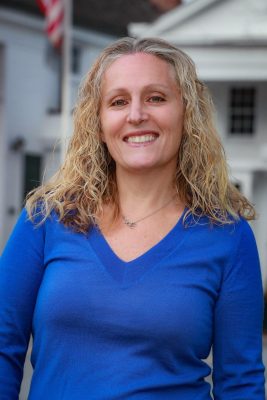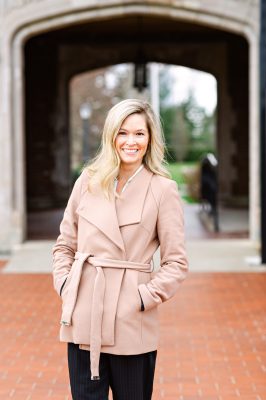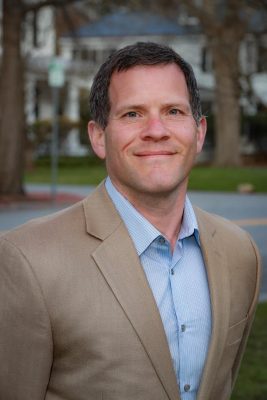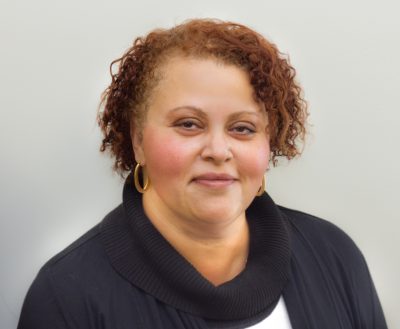Bedford School District Set for Change With Five First-Time Board Candidates
News Based on facts, either observed and verified directly by the reporter, or reported and verified from knowledgeable sources.
There will be three new members of the Bedford Board of Education regardless of the outcome of the May 17 election.
Five candidates, Gilian Goldman-Klein, Chris Kramer, Blakeley Lowry, Roger Nadel and Amal Shady, are on the ballot this year. Goldman-Klein, Kramer and Nadel have joined as one ticket while Lowry and Shady are also running together.
Incumbents Beth Staropoli, Jessica Cambareri and President John Boucher all declined to run for re-election.
When the new board members are sworn in, five of the seven members will have started their service since July 1, 2021, after the election of Robert Mazurek and Steven Matlin.
Gilian Goldman-Klein

As a school psychologist for 23 years, holding a doctorate in clinical and community psychology, Goldman-Klein said she is passionate about education and providing students with the necessary foundation to thrive as adults.
Her knowledge of public education makes Goldman-Klein well-versed in interpersonal dynamics, school budgeting, academic assessment and curriculum evaluation. Putting students first, which has been the focus of Goldman-Klein’s career, will be her priority. She is also concerned about the district’s steady decline over the past decade, according to results from school rating agencies.
“(Bedford) is an excellent school district with amazing teachers and reversing this downward trend by improving both the educational experience and student outcomes will be my primary focus if elected.”
“Our children deserve much better than what we have been doing for them recently,” she added.
With three key central administration positions changing in addition to the new board members, the board must work with the new superintendent to form a big-picture vision for Bedford, a process that must include all stakeholders, Goldman-Klein said. She would advocate for safe, inclusive schools where all students feel empowered and accepted, work to implement the most effective curricula and prioritize improvements in math, literacy, arts, athletics and special education.
“The district should be making well-informed decisions regarding curriculum to improve student learning outcomes at all levels,” Goldman-Klein said. “Students across the continuum, including children with disabilities or learning differences, students in the middle, students ready for enrichment opportunities as well as for students from diverse backgrounds all benefit from the district committing to making decisions based in facts with clear information and taking swift action in evaluating curriculum and outcomes.”
The pandemic has been difficult for everyone, causing social emotional, academic learning loss and isolation from students’ peers and teachers, Goldman-Klein said. For some, that has resulted in a loss of what it means to be part of a school environment, she said. Full-time in-person instruction must continue for them to stay connected, be supported emotionally and to be properly educated. Social-emotional support is best delivered by trained counselors and the district has some of the best, Goldman-Klein said. Additionally, Bedford must provide research-based curriculum.
“I was an advocate for aligning our curriculum with educational science before the pandemic but now with increased learning gaps the need is magnified,” Goldman-Klein said. “We have no to time to waste in making change.
Improved communication within each school would help toward creating a unified community that values tolerance and acceptance for all, she said.
The district has also created programs for students whose English is not their first language as well as having identified supports in each building for learners from diverse backgrounds.
Goldman-Klein supports the independent review stemming from the Fox Lane High School bathroom incidents. She said proactive, strong, consistent leadership prevents a crisis like this one from happening. The process in handling the matter was flawed, including the administration failing to initiate an investigation and trying to quickly identify the perpetrators.
“I believe these vulnerable students were failed because a culture of caring and basic compassion
has been taken for granted,” Goldman-Klein said. “Emphasizing and celebrating the differences and the dignity of each student could help prevent this and other offenses from happening again to any student from any walk of life. Effective leadership must be proactive – not reactive.”
Parents of special education students have not been heard, according to Goldman-Klein. She said many of the students have been denied a free and appropriate public education. Therefore, it is overdue that the board and administration listen and act to create a culture that values all students.
Goldman-Klein supports next week’s $62 million referendum with facilities in need of repairs and updates. She said the broad scope of work will touch every building in the district and improve the learning environment and athletic facilities.
Through listening and seeing another person’s perspective, would help her to work toward making Bedford a cohesive school community
“I believe most things have a middle ground and if we all work collaboratively a solution can be found,” she said. “Our schools are the hub of our community and therefore are the best way to bring us together.”
Chris Kramer

Kramer said he is running for the board to improve the district’s academic proficiency and outcomes. Over the past five years, the district is averaging a 50 percent proficiency rate in ELA and math in grades 3-8, he said. He supports moving toward a program that is grounded in the science of reading.
He believes his 30 years of experience running two small business and his background in management, strategic planning, marketing and curriculum development expertise would benefit the district.
Having served on the Student Achievement Advisory Committee and Diversity, Equity, Inclusion and Belong Committee and having observed many other committees, Kramer said he has a strong understanding of the district and what is needed. His eldest daughter graduated from Fox Lane in 2019, his son is on the autism spectrum and receives special education services at the high school and his youngest daughter is in first grade at Pound Ridge Elementary School.
“We can no longer ignore the scores, make excuses and do nothing,” Kramer said. “The Board of Education should be directing the superintendent to look at curriculum and professional development and figure out ways to help our great teachers provide better outcomes for our children.”
Kramer said the pandemic presented a difficult situation for the district and believes Bedford leadership did the best it could under trying circumstances.
This year the district started rolling out the RULER curriculum as a social-emotional learning plan required by New York State.
“Helping kids to work through and manage their emotions is important, but ultimately, we need to see what results are being produced by the professional development and curriculum associated with RULER to make sure it is showing positive benefits and truly improving student well-being and outcomes,” Kramers said.
Another step that can be taken, he said, is moving toward a philosophy of reaching each student where they are academically. The district must continue to provide additional resources and assistance to those that need it, but also ensure there are plenty of enrichment opportunities for those doing well, as well as not forgetting about the kids in the middle.
Making sure there is never a repeat of special education students being victimized again, the district much have staff that knows where the most vulnerable kids are. In the long term, the district must change the culture of the schools, particularly the middle school and high school, to achieve inclusivity, Kramer said.
Programs such as We Dine Together or Best Buddies can be used so special education students interact regularly with their peers, he said. That should also be used for any student that feels isolated or alone.
Kramer noted that is currently done in the high school with the United Basketball team and Hand in Hand program for after-school sports practice where special and general education students work together.
“We need more of these types of programs, then the culture can start to change,” Kramer said.
The district must ensure that special education students receive the services they need, not just what the district has available, Kramer said. In addition to a culture change, there are major challenges facing the top level of the special education department, he said.
As the father of a student on the autism spectrum, Kramer said his family’s experiences with teachers, aides, specialists and support staff has been positive. But there have been many others that have not had that experience.
“Too many families are unhappy with the treatment through the years, lack of consistency with a revolving door of directors and feelings of not being heard,” Kramer said.
Public pressure stopped the search for a new director, and if elected, Kramer pledged to ensure greater parent participation in that process.
Kramer described the district’s efforts in creating an overall welcoming environment for students of all ethnic backgrounds as “historically excellent.” There is also a diverse staff of teachers, providing many opportunities for kids to see themselves. To encourage more unity and acceptance, the district should have more collaborative events, such as the Elementary School Bike Run that includes all five elementary schools.
However, two years ago, the board created a value statement that aims to inject racialized ideologies into our children’s curriculum, Kramer said.
“It is this push towards ideological programming over the last two years, all while our children were struggling academically due to the pandemic, that has caused a rift amongst the community, which still exists today,” said Kramer, who was attracted to Bedford because of its diversity.
He supports the $62 million bond and credits Mazurek and Matlin for helping guide the board to presenting a scope of work that addresses the district’s priorities. Future work should focus on the elementary schools.
“My professional experience and entrepreneurial spirit fit perfectly with a board that needs to be forwarded thinking, innovative in its approach and fiscally responsible, but creative, when budgeting,” Kramer said.
Blakeley Lowry

As a global public health professional, Lowry has a strong background in community engagement, program development and data-driven decision-making. She currently serves as a curriculum chair and professor of community health at Westchester Community College.
Lowry developed a deep knowledge of the special education system and how to advocate for children with special needs as a paralegal case handler at The Legal Aid Society’s Juvenile Rights Division. She has participated in the district’s Student Achievement Advisory Committee and the Wellness Committee.
“I have decided to run for a seat on the Board of Education for the Bedford Central School District because I want to be part of fostering an environment that serves the needs of every student,” Lowry said.
Bringing aboard a new superintendent this summer while hiring a new assistant superintendent for business and a new director of special education represents a significant transition in staffing and also an opportunity for the district to reset, Lowry explained. Three new board members can help the district re-evaluate its priorities and work toward developing a strong governance structure and a positive relationship with the new superintendent, she said.
Teachers did a commendable job educating students through the height of the pandemic. Lowry said the district is addressing pandemic-related learning loss by using federal grant money to enhance instruction and expand summer programming. The implementation of RULER, an evidence-based approach to social and emotional learning, can help students learn how to use their emotions wisely, which has been shown to improve student engagement and academic performance, cause less stress and anxiety and enhance decision-making, she said.
It will be important to continue to invest and support these types of methods to address emotional and mental health needs, Lowry said.
Following the Fox Lane High School bathroom incidents, trust must be regained by establishing a culture of safety, she said. The district needs to develop a strategic plan that can be executed immediately to increase safety and security for all students, Lowry said.
The crisis has also highlighted the problems within the district’s special education system and how many parents of special education students have felt their children’s needs have not been met.
“Parents have been advocating for changes involving literacy curriculum and performance indicators,” Lowry said. “There also needs to be more opportunities to spotlight the achievements of special education students. We need to explore and follow up on these recommendations. It is critical to make sure parents are given an opportunity to provide input on what they would look for in the new director of special education.”
To address the increasing diversity of Bedford schools, the district has implemented successful programs in recent years to educate English language learners. The Dual Language Bilingual Education program is one of the district’s key strengths, Lowry said.
“I know that parents are very pleased with their children’s bilingual and biliteracy skills as a result of participation in the program,” Lowry said. “Expanding the program as an option through 12th grade would strengthen the program and allow for student achievement data to be tracked over a longer time period to demonstrate further success. I think increasing staff diversity continues to be a priority.”
She looks forward to the recommendations of the Diversity, Equity, Inclusion and Belonging Committee and seeing those implemented.
Lowry said many people point to performance data from the third- to eighth-grade English Language Arts tests to draw conclusions about how the district is performing, but those scores are snapshots in time. They must be viewed in conjunction with other data. The priority should be to identify the struggling students to design better instruction, interventions and other supports needed to increase performance.
“It is difficult to compare our district to neighboring districts because we have a very racially, ethnically and economically diverse student population,” Lowry said. “Prioritizing inclusive and equitable practices leads to better results in reducing disparities in literacy, academic achievement and graduation rates. Equity must be infused across the system, from staffing and budgeting to starting programs and allocating resources.”
Lowry supports the upcoming bond package, which addresses the most important and appropriate priorities in the schools.
Despite some tension in the community during what has been a difficult year, Lowry is optimistic about the district’s future.
“As parents and community members with a vested interest in the success of our children and our schools, there is more that unites than divides us,” Lowry said. “Building back parents’ trust in the district and the board is essential to moving forward.”
Roger Nadel

Nadel is running for the Bedford Board of Education because the academic success of all children became a motivating factor after watching his son navigate the learning process through the pandemic. Nadel concluded that the district has an achievement problem.
“A school district with (a) $148 million budget should not rank lower than peers with the same or lower average cost per student,” said Nadel, who has 15 years of executive management experience in business operations, with expertise in finance, budget allocation, profit and loss, vendor management and project development related to sustainability.
“To achieve better outcomes in academics, sports and the arts for all students. we must allocate the resources correctly and efficiently so the teachers and staff – we have the best and the brightest – can do the work they are tasked to do. The (district) has plenty of tools in the tool shed, let’s use them.
He pointed to the failure of math and English language scores to improve and declining graduation rates to highlight that the status quo for the district is unacceptable.
There is a current lack of accountability and leadership in the district that has caused some public discontent, said Nadel, an ex-Marine. The district has also been plagued by recent management lapses. A new superintendent and new board can help Bedford schools return to its top priority, which is safely educating all students.
Communication must be consistent and information from the district must be presented clearly by establishing processes and procedures. If elected, Nadel said he would implement a review of certain existing procedures so educational performances are exceeded and not compromised.
The district did as well as it could during the height of the pandemic, Nadel said, but there has been significant learning loss and an emotional health crisis as a result of the loss of person-to-person interaction.
Developing a preemptive plan learning from mistakes and successes with COVID should be developed. The more than $2 million surplus can be used to improve plans to prevent children from falling behind further because of pandemic-related health issues.
“As for students struggling academically and or emotionally, the school district must offer resources, including counselors, specialized teachers, metal heath experts and social workers who can meet students where they are psychologically and academically. Especially the most vulnerable,” Nadel said.
Nadel said the Fox Lane High School bathroom incidents were “deeply concerning.” A lack of communication and accountability from district officials made the situation worse and left the most vulnerable members of the community feeling marginalized. Strong communication amongst the board and the new superintendent is crucial in creating a welcoming environment.
Nadel said the Marines used After Action Reports to determine what went right and right, a process that provided transformative results. A similar concept should be introduced in Bedford to manage crises and make recommendations to make improvements.
He would also like to have the new special education director look at existing procedures for students who need the most services and evaluate what can be done to create a more inclusive environment, including progressive integration with the general student population. A new director under the leadership of a new superintendent will bring much-needed change while sending a message to parents that help is on the way.
“The lack of faith and mistrust in special education needs to be amended,” Nadel said.
The district has done a decent job in promoting an inclusive environment, he said. Curriculum designed to include all members of the community in an immersive cultural atmosphere of learning is crucial. Encouraging community participation across the district will benefit diverse families and reduce marginalization.
“Also, by focusing on academic outcomes we as a board can address achievement issues within this student population,” Nadel said. “No student should be left behind and ignoring key metrics or data does a disservice to all.”
Nadel said he was happy to see more than $9 million of the upcoming bond issue dedicated to health and wellness initiatives and the reconfiguration of space to enhance STEAM, music and outdoor learning.
He got to know Goldman-Klein because they each had a child in the same class. Shortly afterward, he was introduced to Kramer. He understands that some members of the community may take their emergence as a team as them agreeing on issues in lockstep. They would provide stability and practical leadership, Nadel said.
“I am aware of the groupthink critics,” Nadel said. “We all are committed to improving educational outcomes. A robust, respectful and healthy disagreement is the fundamental backbone of a functioning democracy. We will work well together to make progress, and at this specific time, it is sorely needed.”
Amal Shady

Being involved in the Bedford Central School District and the community is nothing new for Shady. She’s served on various district committees, the board of the Foundation of the Bedford Central Schools and the Town of Bedford Ethics Committee.
Shady has always found volunteering to be gratifying. Now she’s taking is to the next level.
“I really think that I have from my experience, I have the ability to help the district, said Shady, who specializes in business resiliency and helped organizations through the pandemic. “So I figured this was a good time to go ahead and run.”
She also thought that while some people may view the looming changes in the administration and board as a time of upheaval, Shady looks at it as an exciting time that can infuse the district with fresh ideas.
The change can be a positive as long as the seven board members who will serve for 2022-23 are united in wanting to help the schools improve, Shady said. With someone who has put two children through the district and another who will start middle school next year, Bedford schools have some outstanding educators, she said.
But virtual learning and other challenges in recent years has contributed to derailing some of the progress that should have been made, she said.
“I think we’re going to work together to get the district back on the right track because I think it’s been lost a little bit,” Shady said.
Focusing on students’ mental health and infusing the schools with programs that would be effective, such as role playing and bringing in the right types of counselors that can help students through a difficult time, are needed, she said. Being able to help children handle change in their lives would be a great quality for them to acquire.
“What you can count on is there’s always going to be change,” Shady said. “So it’s okay that there’s change. Now let’s figure out what our new hires are going to look like.”
The district must ensure that each student can be safe and secure when they come to school, including being free from bullying. Shady said that is one area that her professional experience can come in handy because she conducts safety assessments for buildings and sites.
An effort that the district can consider is having general education students volunteer to spend time with special needs students, so the special education kids aren’t left alone.
“There’s always safety in numbers when you have somebody you can trust,” Shady said. “The student doesn’t feel isolated or out of place, and transitioning from a special needs program into a bigger high school, having a buddy is going to bring an extra level of comfort and safety for them.”
What has been concerning for Shady regarding special education is that there has been a lack of communication about services available to district students. Too many parents with children who need services feel ignored, she said. Those parents must be assured that every student matters.
“The head of special education has to come in with new ideas and say keep what’s worked in the past, but because a lot of parents of special needs or special education students aren’t happy, we need to listen to them,” Shady said. “We really, really need to listen to what they have to say.”
While test results can be an indicator of student performance, the district should dig deeper to find out who are the children who are falling short of expectations.
“The kids that need the most help, are they the kids from the most underprivileged areas?” Shady said. “We need that kind of information, looking at the data, understanding how to look at the data and you can understand where there are issues, so you can figure out how to improve them.”
Because the district is as ethnically diverse as it is, Shady said Bedford should have more bilingual aides and teachers, which would also help them keep in contact more effectively with immigrant parents who may not be able to communicate in English.
She supports both propositions that comprise the $62 million bond. The district and the board did a good job at identifying the needs, Shady said. So much of the schools’ infrastructure needs to be upgraded and the buildings must be more comfortable for students to learn properly.
Shady is running as a team with Lowry in this election because they share a similar outlook for the district.
“We’re very positive, very optimistic,” she said. “We see so many of the good things of the district, and unfortunately, the negative ones are the ones that are in the media. That’s what always happens.”

Martin has more than 30 years experience covering local news in Westchester and Putnam counties, including a frequent focus on zoning and planning issues. He has been editor-in-chief of The Examiner since its inception in 2007. Read more from Martin’s editor-author bio here. Read Martin’s archived work here: https://www.theexaminernews.com/author/martin-wilbur2007/
